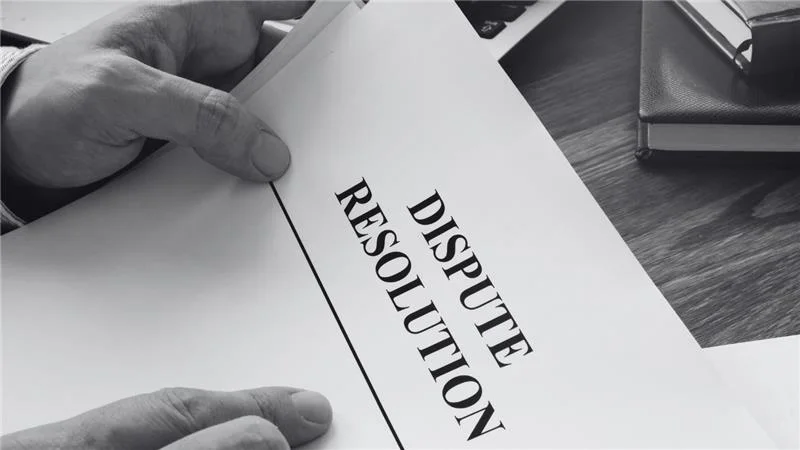Have you ever engaged in a heated dispute with a supplier or business partner and wondered how it escalated?
Unexpected commercial disagreements can cause operations to go awry and relationships to become strained. To safeguard your interests and promote a positive work environment, Chilliwack and Langley business owners and executives must be aware of the typical reasons for these conflicts. Being able to stop disputes before they start saves time and money and improves your standing in the business community in a setting where teamwork is essential. To keep your company on the right track, this article will examine the key reasons why business disputes occur and offer practical solutions to stop them.
Let’s examine the intricacies of business partnerships and learn how to protect your company from possible dangers.
What are commercial disputes?
Commercial disputes refer to disagreements between businesses or between them and their customers, suppliers, or partners. These disputes can arise from various factors, including contract breaches, misunderstandings, and differing expectations. In regions like Chilliwack and Langley, where businesses are continually evolving, the potential for conflict is ever-present.
Common Causes of Commercial Disputes
Business Contract Disputes
One of the most prevalent causes of commercial disputes is issues arising from business contracts. Contracts are foundational to any business relationship, and when parties fail to adhere to the terms outlined, disputes can ensue. Common issues include:
Ambiguities in contract language
- Non-performance or late performance of contractual obligations
- Disagreements over payment terms
- To mitigate these risks, businesses should prioritize clear contract negotiation and drafting, ensuring that all parties have a mutual understanding of the terms.
Business Partnership Disputes
Partnerships can be fruitful but also fraught with potential conflicts. Disputes may arise due to:
- Disagreements over business direction
- Unequal contributions or efforts from partners
- Disputes regarding profit distribution
- Establishing clear partnership agreements and maintaining open lines of communication can help prevent these conflicts.
Supplier Contract Disputes
Relationships with suppliers are essential for smooth operations. Disputes can emerge from:
- Delayed deliveries
- Quality issues with products
- Failure to meet agreed-upon terms
- Implementing robust supplier contracts and maintaining regular communication can reduce the likelihood of such disputes.
Customer Disputes
Customer satisfaction is vital for any business. Disputes may arise from:
- Misunderstandings regarding product specifications
- Delays in service delivery
- Issues with returns or refunds
- Effective communication and transparent policies regarding customer service can help mitigate these disputes.
Legal Compliance Issues
Businesses must navigate a complex landscape of regulations and compliance requirements. Failure to comply with legal standards can lead to disputes, particularly in areas such as
- Employment law
- Environmental regulations
- Health and safety standards
- Regular legal audits and consultations with a business litigation lawyer in Chilliwack or Langley can help ensure compliance and prevent disputes.
Preventing Commercial Disputes
Prevention is always better than a cure. Here are some effective strategies for preventing commercial disputes:
1. Clear contract negotiations and drafts
Contracts should be detailed and clear, leaving no room for ambiguity. Consider the following tips:
Use Plain Language: Avoid legal jargon that may confuse parties.
Define Key Terms: Clearly define phrases and conditions, including timelines and responsibilities.
Include Dispute Resolution Clauses: Specify how disputes will be resolved, whether through mediation, arbitration, or litigation.
2. Effective Communication
Open and transparent communication is essential in any business relationship. Regularly check in with partners, suppliers, and customers to ensure everyone is on the same page. These conversations can help identify potential issues before they escalate into disputes.
3. Risk Management Strategies
Implementing risk management strategies can help identify potential areas of conflict. This includes:
Regular Assessments: Conduct regular assessments of contracts and relationships to identify potential risks.
Training: Provide training for employees on conflict resolution and communication skills.
4. Legal Advice for Businesses
Consulting with a commercial law firm in Chilliwack or Langley can provide invaluable legal advice for businesses. A knowledgeable lawyer can help draft contracts, ensure compliance, and offer guidance on best practices for dispute resolution.
5. Mediation and Arbitration Services
Utilizing mediation and arbitration services can provide a more amicable resolution to disputes. These alternative dispute resolution methods can save time and money while preserving business relationships.
6. Establishing Clear Policies
Having clear company policies regarding customer service, returns, and employee conduct can help prevent misunderstandings that lead to disputes. Ensure that these policies are communicated effectively to all stakeholders.
Dispute Resolution Strategies
In the event of a commercial dispute, having a clear strategy for resolution is essential. Here are some effective dispute resolution strategies:
1. Direct Negotiation
Often, the simplest way to resolve a dispute is through direct negotiation. Encourage open dialogue between the parties involved to address concerns and seek a mutually agreeable solution.
2. Mediation
Mediation involves a neutral third party who facilitates discussions between the disputing parties. This approach can help clarify issues and foster understanding, leading to a resolution that satisfies both sides.
3. Arbitration
Arbitration is a more formal process where a neutral third party makes a binding decision on the dispute. The procedure can be a quicker and less expensive alternative to litigation, making it an attractive option for many businesses.
4. Litigation
If all else fails, litigation may be necessary. Engaging a business litigation lawyer in Chilliwack or Langley can provide the expertise needed to navigate the complexities of the legal system and advocate for your interests.
Conclusion
Commercial disputes are an inevitable part of doing business, but understanding their causes and implementing effective prevention strategies can significantly reduce their occurrence. By prioritizing clear communication, thorough contract negotiation, and seeking legal advice from a reputable commercial law firm, businesses in Chilliwack and Langley can protect themselves against potential conflicts.
Sorensen Truong LLP is a legal service provider specializing in commercial law and dispute resolution. With their expertise in business litigation, mediation, and arbitration, they can help businesses navigate the complexities of commercial disputes while ensuring compliance with legal standards. By partnering with Sorensen Truong LLP, you can focus on growing your business with confidence, knowing that you have the legal support you need to address any challenges that may arise.





